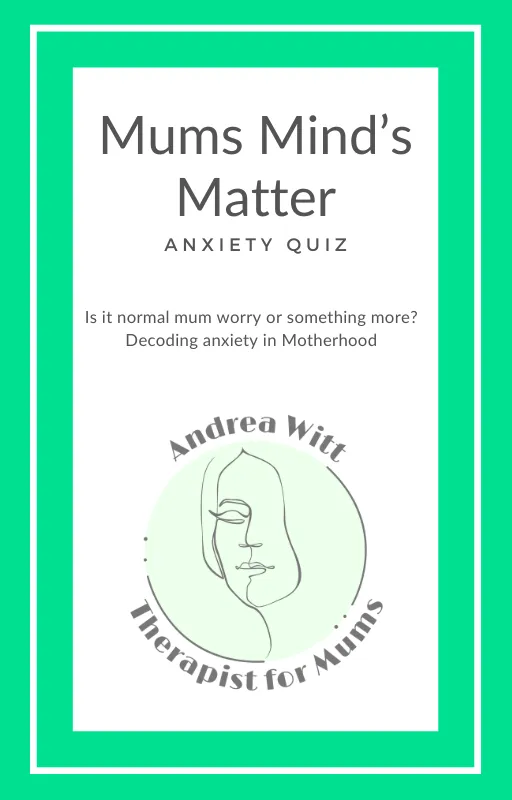Intrusive Thoughts in Motherhood: How to Manage Them Like a Pro
Intrusive thoughts. Those sneaky, unwelcome visitors that pop into your head, leaving you questioning your sanity. If you’ve ever had one of those unsettling "what if" moments, you’re not alone. Intrusive thoughts are incredibly common for mums.
What Are Intrusive Thoughts?
Intrusive thoughts are those random, often alarming ideas that seem to come out of nowhere. They’re persistent, unsettling, and can feel all-consuming, especially when you’re already managing the million demands of motherhood.
You know the ones I’m talking about:
- What if something happens to me?
- What if I can’t protect my child?
Let’s clear this up straight away: intrusive thoughts don’t define you. They’re a symptom of anxiety, not a reflection of your character or parenting abilities. These thoughts are not you, they’re just a by product of an anxious brain working overtime.
How to Manage Intrusive Thoughts
You’re here for the practical tips, so let’s have at it as we say up North!
1. Challenge the Thought
When an intrusive thought strikes, don’t just accept it, challenge it. Ask yourself:
- How likely is this to happen?
- What evidence do I have to support this thought?
Chances are, the thought won’t hold up under scrutiny. By questioning it, you’re stripping it of its power and reminding your brain that it’s not a real threat. Intrusive thoughts thrive on fear and uncertainty, so this simple exercise can help you regain control.
2. Stop Fighting the Thought
Here’s the thing: the harder you try to push intrusive thoughts away, the stronger they come back. It’s like trying to hold a beach ball underwater, it’ll pop up with even more force the moment you let go.
Instead, try acknowledging the thought. Say to yourself, "Oh, I’m having that thought again. That’s interesting." This helps you separate yourself from the thought, recognising it as just that; a thought, not a fact. This small shift can make a big difference.
3. Practice Makes Progress
The more you challenge and acknowledge intrusive thoughts, the more you train your brain to see them as harmless. Over time, this practice reduces their intensity and frequency.
It’s not about eliminating intrusive thoughts entirely (spoiler: everyone has them), but about changing how you respond to them.
Why Do Mums Get Intrusive Thoughts?
Intrusive thoughts often stem from a need for certainty. And let’s face it: motherhood is full of uncertainty. From the moment you become responsible for a tiny human, your brain goes into overdrive trying to protect them from every possible danger , even the imagined ones.
Mums are particularly vulnerable to intrusive thoughts because of the immense responsibility we carry. We strive to do everything perfectly, keep our children safe, and be the best version of ourselves. That pressure can leave us feeling vulnerable, creating the perfect storm for intrusive thoughts to creep in.
Final Thoughts (Pun Intended)
If you’re struggling with intrusive thoughts, remember this: you’re not broken, and you’re not alone. These thoughts are a normal part of anxiety and don’t make you a bad mum or a bad person. In fact, the very fact that you worry about them shows how much you care.
Start small. Challenge your thoughts. Acknowledge them. And don’t hesitate to seek support if you need it—therapy can be a game-changer. You deserve to feel calm, confident, and in control.
Intrusive thoughts may be a total arse, but they don’t have to rule your life.


